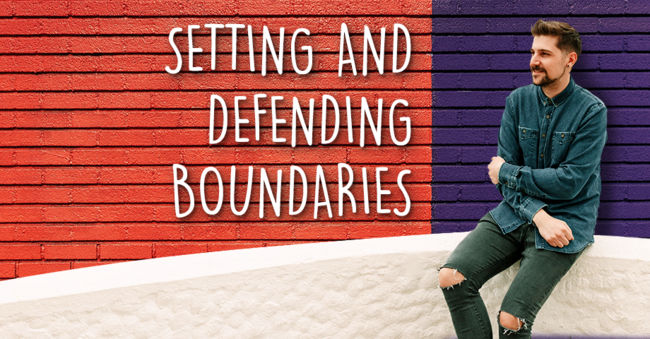
Quick Links
Resources
About MyHemophiliaTeam
Powered By




There is an old saying: “Good fences make good neighbors.” Having healthy boundaries in relationships is important for everyone, especially for people with a chronic condition like hemophilia. Setting and defending boundaries allows you to protect your physical and mental health and focus on feeling your best while living with or caring for someone with a bleeding disorder.
Setting boundaries can be hard. Your friends and family may not be used to you saying no or establishing limits for when and how you are available to them. They may not understand the impact hemophilia symptoms like fatigue, joint pain, or fear of bleeds have on you. No matter what, you are entitled to establish the boundaries you need to maintain the emotional and physical wellbeing of yourself or your child. Setting boundaries does not make you mean or selfish – it helps you focus on what you need to do to care for your bleeding disorder.
Here are a few tips for setting boundaries clearly and compassionately:
After setting boundaries, do not be surprised if you need to defend them. Some people will likely test your boundaries, especially when they are new. Expect some pushback and consider what a good response might be.
Here are some examples of boundary testing and possible responses:
After testing your boundaries a few times, most people will understand that they are well-defended and learn to respect them. If you have allies who understand the challenges of a bleeding disorder, ask them to help you defend your limits with others. Remember, you don’t need to apologize for setting good boundaries that help you stay healthy, manage your symptoms, and feel your best while living or caring for someone with hemophilia.
Here are some conversations from MyHemophiliaTeam about setting and defending boundaries:
"You learn who really cares and who doesn't. Sometimes I feel people don't want to do things with me because I can't do all the things I use to be able to for very long and in the winter I can't be out."
"I have to take care of myself first. I have a problem of trying to buy, cook, and give my time to everyone. At 59, I finally quit!"
"He's been lying to me recently about things she says and has been trying to have me get this woman fired. I know he's frustrated but there's no excuse for that."
Have you successfully set boundaries that help you manage your bleeding disorder?
What tips would you recommend to help set healthy limits with others?
Share in the comments below or directly on MyHemophiliaTeam.
Get updates directly to your inbox.



Become a member to get even more:




We'd love to hear from you! Please share your name and email to post and read comments.
You'll also get the latest articles directly to your inbox.